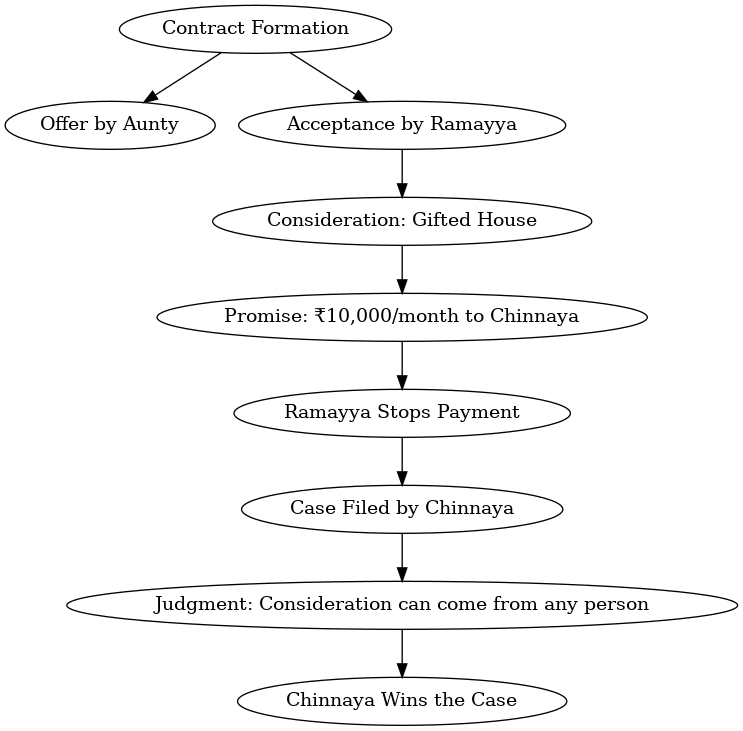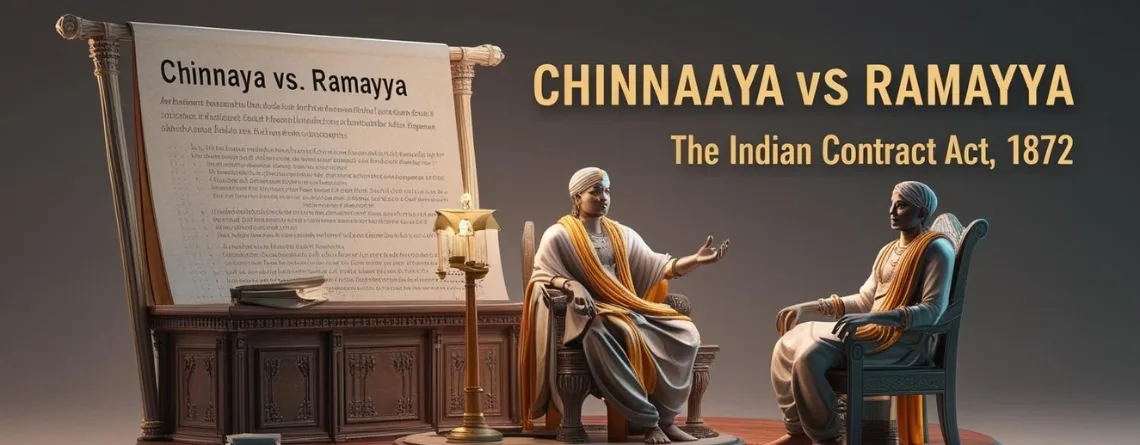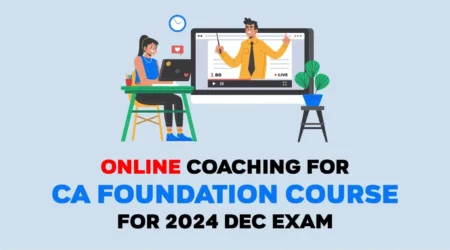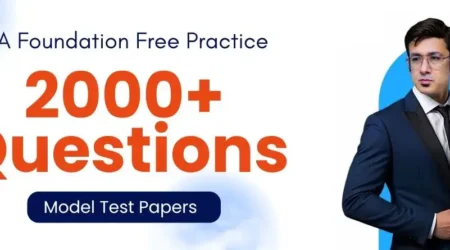Chinnaya vs Ramayya Case Study: Consideration in Indian Contract Act, 1872
(Explained by Rishabh Gaur Sir, IGP CA Foundation Faculty)
Introduction: Understanding Consideration
When two people enter into a contract, there is always an exchange —
“Main aapke liye kuchh karunga, aap mere liye kuchh karenge.”
“I’ll do something for you, and you’ll do something for me.”
There is an offer, then a consideration is demanded, and finally acceptance happens.
Thus, a contract is formed.
But a big question arises —
“Consideration kaun dega?”
“Who will provide the consideration?”
According to the Indian Contract Act, 1872, consideration can come from:
- Promisee (the one receiving the promise), or
- Any other person
To understand this concept better, let’s dive into a beautiful, real-life-style case study: Chinnaya vs Ramayya.
Read Also: Section 72 of Indian Contract Act: Simple Example Explained
The Story of Chinnaya vs Ramayya
Dhyan se sunna, here is the story:
Listen carefully.
There was an Aunty, who had a sister.
- Aunty’s daughter’s name: Ramayya
- Aunty’s sister’s name: Chinnaya
Situation:
- Aunty was on her deathbed (Antim sans le rahi thi).
- Aunty was worried about her sister Chinnaya.
- She told her daughter Ramayya, “Main mar rahi hoon, meri bahan ka khayal rakhna.
Har mahine usko ₹10,000 pocket money dete rehna.“
“I’m dying. Please take care of my sister. Give her ₹10,000 every month for her expenses.”
Ramayya said,
“Theek hai mummy, main Mausi ki madad karungi — but badle mein mujhe bhi kuchh chahiye!“
“Okay Mom, I’ll help Mausi — but I want something in return!”
Negotiation:
- Aunty asked, “Bata tujhe kya chahiye?“
“Tell me, what do you want?” - Ramayya said, “Jo ghar papa ke marne ke baad aapka ho gaya tha,
woh ghar mere naam kar do — gift banakar.“
“Gift me the house that became yours after Papa passed away.”
Aunty agreed happily.
Thus, Ramayya got the house gifted to her, and in return, promised to give ₹10,000 monthly to Chinnaya.
Read Also: Is Word-to-Word Copying Needed in CA Foundation Exams?
What Happened Next?
Few days later, Aunty passed away.
After some time, Ramayya stopped giving ₹10,000 to Chinnaya.
Ramayya’s Argument:
“Ab maa mar chuki hai, mera mann badal gaya!“
“Now that mother has passed away, I’ve changed my mind!”
“Main apni mausi ko paise kyun doon?
Chinnaya buddhi mujhe kya de rahi hai badle mein?“
“Why should I give money to my aunt? What is this old lady giving me in return?”
So she stopped paying.
Chinnaya then filed a case in the court.
Read Also: Avoid Failing CA Foundation Law in Your Next Attempt
The Legal Battle: Who Won?
The court had to answer:
- Was the contract valid?
- Who provided the consideration?
- Can Chinnaya legally demand the money?
Ramayya’s Defense:
“Mujhe ghar mummy se mila tha, mausi se nahi.“
“I got the house from my mother, not from my aunt.”
But the court gave a clear decision.
Court’s Judgment:
“Tumhe ghar mila tha na?
Tumhare demand par mila tha na?
Tumhe consideration mil gaya na?“
“You got the house, right? You got it because you asked for it, right? So you received consideration, didn’t you?”
“Indian Contract Act ke hisaab se — consideration kisi bhi insaan se aa sakta hai.“
“As per the Indian Contract Act, consideration can come from anyone.”
Thus, Chinnaya won the case! ✅
Join Now: CA Foundation Classes Online or Offline
Moral of the Story: What Did We Learn?
From Chinnaya vs Ramayya, we understand:
- In India, consideration can come from promisee or any other person.
- If this case was in England, their law says only the promisee must give consideration.
- But in India, even a third party providing the benefit is valid under the contract.
As Rishabh Gaur Sir explained:
“consideration can come from promisee or any other person — itna yaad rakhna!“
“Just remember — consideration can come from the promisee or any other person!”

Read Also: Understanding Court Judgements & Case Studies in CA Foundation Business Law
Conclusion
Chinnaya vs Ramayya is a classic example that explains a major concept in contract law:
- A contract is valid as long as consideration exists — no matter who provides it.
- In India, it’s not necessary for the promisee to give consideration.
- The case confirms that even a third party’s action or benefit can make a contract enforceable.
So remember:
✅ Offer + Acceptance + Consideration = Valid Contract
✅ Consideration can be from anyone (in India)!












Leave a Reply